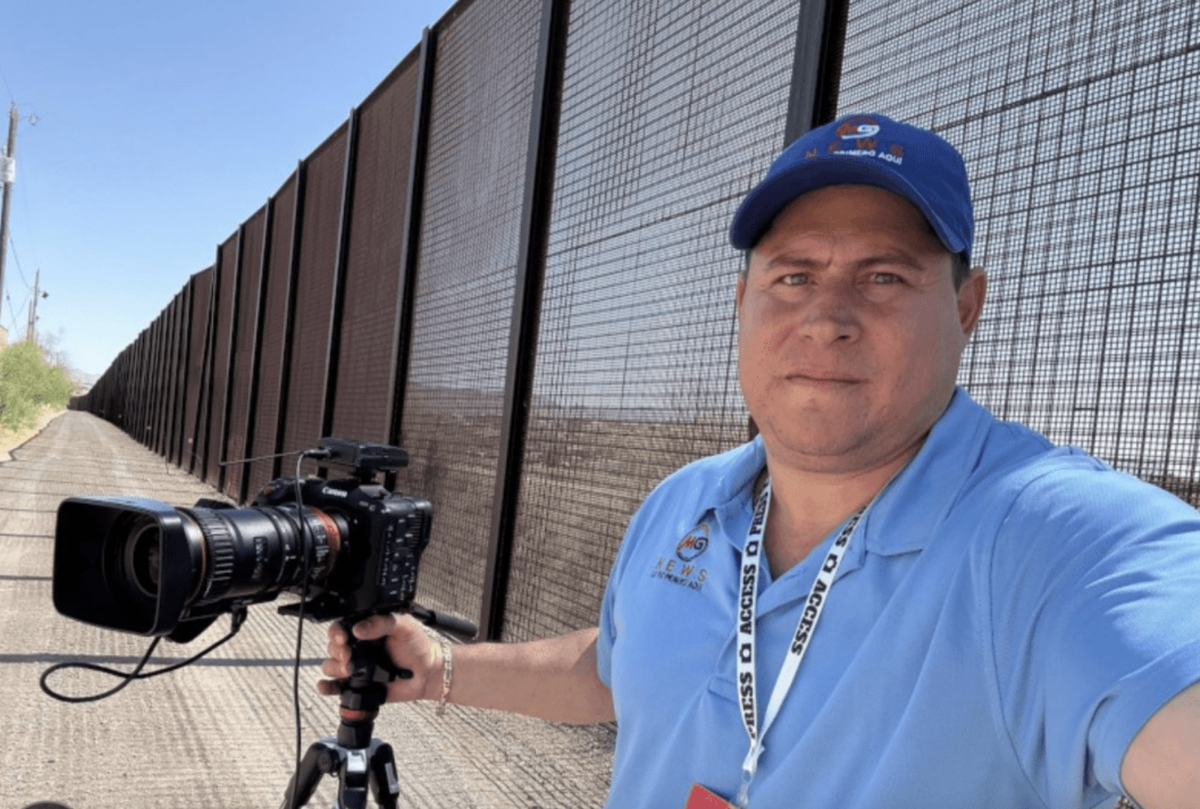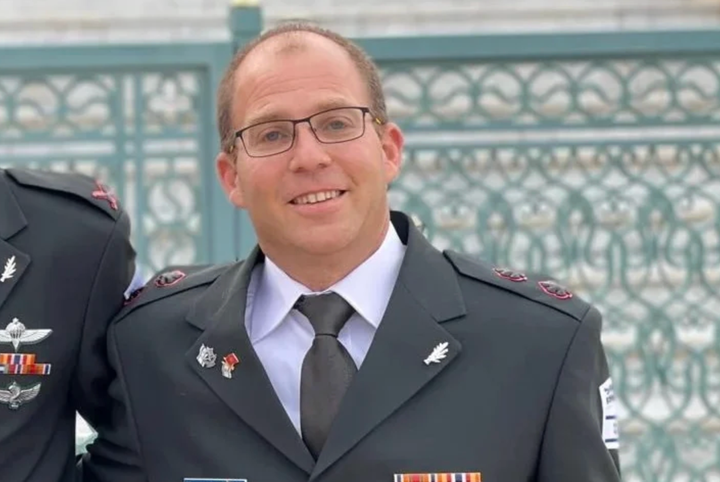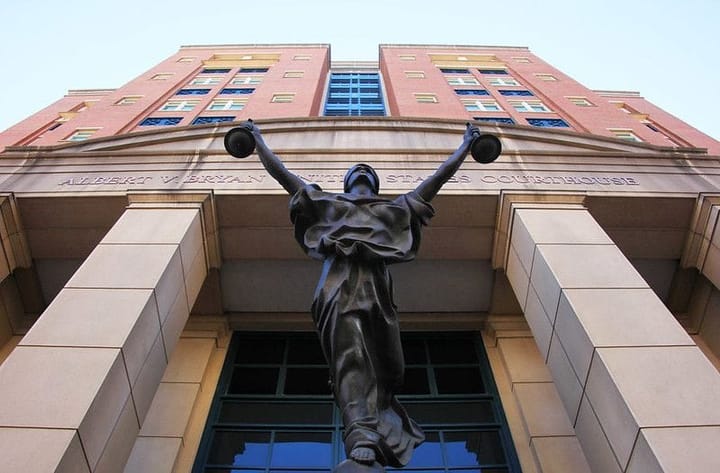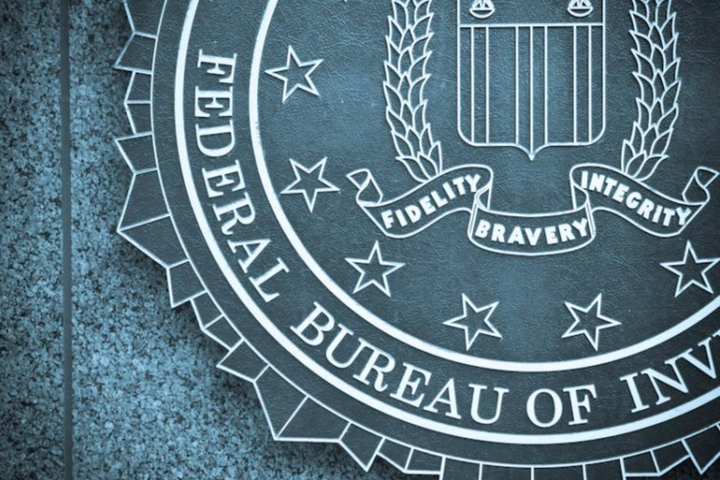The Only Journalist In US Detention For Their Reporting
Journalist Mario Guevara faces imminent deportation from the United States unless a federal court intervenes

The following article was made possible by paid subscribers of The Dissenter. Become a subscriber and support journalism on press freedom, whistleblowing, and government secrecy.
Journalist Mario Guevara faces imminent deportation from the United States unless a federal court intervenes to protect his First Amendment rights and orders his release from detention.
Guevara, a Spanish-language reporter in Atlanta, Georgia, fled El Salvador more than 25 years ago. On June 14, he was arrested while covering a “No Kings” protest against President Donald Trump. Police transferred Guevara to a county jail, and days later, he was in the custody of Immigration and Customs Enforcement (ICE).
On September 19, the Board of Immigration Appeals, an administrative body that falls under the U.S. Justice Department, reopened a 13-year-old immigration case against Guevara. The board essentially granted the Trump administration the authority to deport Guevara to El Salvador.
The ACLU immediately filed an emergency motion in the U.S. District Court of the Southern District of Georgia and demanded Guevara’s release. A coalition of First Amendment, press freedom, and journalist groups led by the Committee to Protect Journalists and Free Press also issued a call for ICE to free him.
“An Emmy award-winning journalist has been detained for over 100 days—all because the government considers his livestream reporting a threat,” the groups declared. “This is one of the longest periods a journalist has ever been detained in the United States.”
“Guevara is the only known journalist currently behind bars in the U.S. for his reporting. The government’s prolonged detention of Guevara sends a chilling message to all journalists, citizens, and residents who record law enforcement, report on government activities, and seek to report the truth.”
The groups added, “This concerns all of us as a blatant attack on the First Amendment and press freedom. Livestreaming and filming police is not a crime.”
ICE’s detention of Guevara has received some attention from prestige media organizations, but not the kind of sustained coverage that would help make Guevara a household name.
Still, under threat of deportation, Guevara has written about the injustice that he has endured in ICE detention at the Folkston ICE Processing Center.
The Bitter Southerner, an independent media company in Athens, Georgia, published one of his letters on September 19.
Guevara was put in solitary confinement when ICE first detained him. “Without any justification, ICE gave the order to put me on ‘admin segregation.’ They put me in a small cell where, for 72 days, they only let me out for two hours each day to breathe fresh air and see the sunlight—but from inside a cage in the backyard of the unit.”
Solitary confinement resulted in “nightmares that the authorities were chasing me and shooting at me, and that they were raiding my house and arresting my whole family.” He had difficulty sleeping during the first two weeks.
Gwinnett County sheriff’s deputies visited Guevara in Folkston. They presented him with “traffic charges” and claimed if he paid nearly $4,000 in bail then he would be immediately released. Guevara notified his family, and they paid the required amount. But it was a “trick” because ICE agents kept him in their custody.
At a federal prison, according to Guevara, “A group of several non-immigrant inmates took photos of me and charged $60 a day to not hurt me. This was all because I was well-known outside of jail.” Guevara’s family had to pay extortion money to ensure that he was not killed.
Guevara’s attorneys convinced the government to return him to Folkston. Upon return, he was placed back in solitary confinement. The nightmares resumed. “The confinement and loneliness caused panic attacks, and I lived in constant fear.”
A prison psychologist helped Guevara conclude that he was “sinking into depression because I was constantly thinking and believing that something bad, and even worse than what was happening, was waiting for me.”
“Many times I wake up angry, other times very sad or frustrated. I miss my loved ones and miss freedom more than ever,” Guevara shared.
Guevara additionally acknowledged, “This whole situation has me devastated, and not only morally, but also economically, because I am the breadwinner for the home. Since my arrest, I have lost tens of thousands of dollars and my company, the news channel MGNews, is on the verge of bankruptcy.”
The habeas complaint, which seeks relief from the court, outlines the fact that Guevera has “work authorization, a social security number, and has paid taxes as required by law.” He is eligible for “lawful permanent residency as the beneficiary of an I-130 Petition for Alien Relative, filed by his 21-year-old U.S. citizen son, Oscar,” who "suffers speech issues, recurring seizures, and intense nerve pain after suffering a stroke during surgery to remove a brain tumor.”
As a recent report from the Physicians for Human Rights (PHR) details, Guevara is one of more than 10,000 people that ICE has held in solitary confinement since April 2024.
“In the first four months of the second Trump presidency, the monthly increase in the use of solitary confinement was twice the rate observed between 2018 and 2023, and more than six times higher than during the end of the previous administration,” according to PHR.
All of this suffering should come to an end immediately, and ICE should quit treating livestreaming or the filming of police as some type of violent act.
Yet through ICE's masked deployments to cities throughout the country, the world is witnessing how little the Trump administration cares about the First Amendment rights of anyone engaged in the act of journalism—especially noncitizens like Guevara who they can silence in this cruel manner.




Comments ()